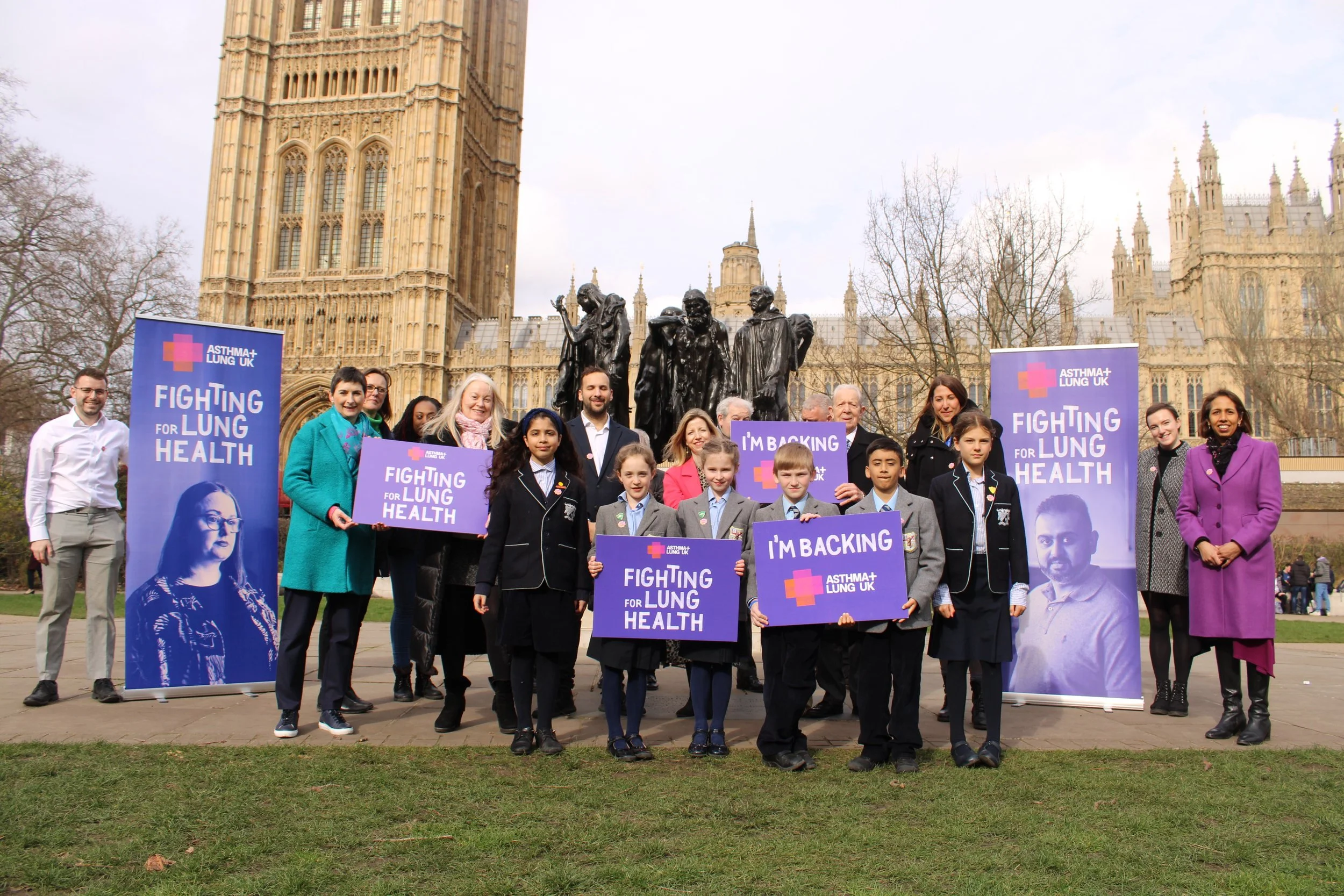Lisa, a Welsh scientist asks: Why is asthma worse for women?
Lisa Hall, 40, from Newport in Wales, was diagnosed with asthma shortly after giving birth to her son. She believes the hormonal changes following pregnancy and birth were responsible for her getting asthma and is campaigning for more research into this.
I was 28 when I was diagnosed with asthma, not long after having my son, Josh. I had to adjust to being a new mum and having a new diagnosis to juggle.
Within just months of giving birth, I started having symptoms of wheeziness and was often tight-chested. It felt like I had something else lying on my chest other than my new born son. After months of going back and forth to the doctors, I was diagnosed with asthma. It was a relief to know what was wrong with my breathing and to have a plan to try and control it.
I was hospitalised with my first asthma attack when my son was just 3 years old and since 2018 it has got significantly worse. I have been hospitalised over 40 times; it really hits home writing this. Anything from the change in temperature, to pollen to certain perfumes can trigger an attack.
Shining a light on female hormones
I would never want a new mum or any other woman or girl to experience the same thing I have. We need to better understand how asthma affects women so we can find new treatments that will give people like me their lives back. As a biomedical scientist, I’m naturally interested in finding out the why and how that’s why I was really excited to hear about Asthma + Lung UK’s Women with Asthma campaign. It has helped to shine a light on female hormones and how new research may hold the key to a better quality of life for women who are living with asthma.
Women are twice as likely to die of an asthma attack
I was shocked to read the Asthma Is Worse for Women report which shows women are twice as likely to die of an asthma attack than men with asthma. The call for more research funding is because Asthma + Lung UK believe women are being failed by a lack of research into links between hormone changes and asthma, and I agree.
Leading up to my period I notice a difference in my breathing. My symptoms get worse, and it often leaves me struggling to breathe. Some people feel speaking about your menstrual cycle is quite taboo, so maybe if it's thought about on a medical level, and questions could be raised from the medical professional side rather than it coming from the patient that would help.
Discussing periods and symptoms could open discussion pathways and potentially better treatment options for women and girls finding themselves in a similar position.
If you are reading this and feel your hormones could play a role, please keep a diary of your asthma symptoms at key hormonal times such as in the run up, during or after your period and see if you notice any patterns. Talk to your GP or asthma nurse, sharing your experiences can only help find answers.
Hope for the future
I am hopeful for the future and that we will find more answers. But for now, I will continue to try new treatments to help control my asthma. Although I have seen an improvement in my symptoms since starting biologic therapy, I still get admitted to hospital twice a year. I am currently trialling new medication, and I am hopeful this new treatment will help me control it, so I can enjoy life and have fun with my son, Josh.
Do you want to learn more about how asthma affects women and what we’re doing to find the answers you need to live well with your lung condition? Sign up for specific news and updates on women and asthma here.
We empower people with lung conditions to make changes that can be transformative.
Please donate now to help make sure people with lung conditions can live well this year.








Chloe was diagnosed with asthma as a child. As she got older, her symptoms had completely disappeared. But when she started university, this changed. Here she tells us how getting active has helped her manage her asthma - and changed her life.